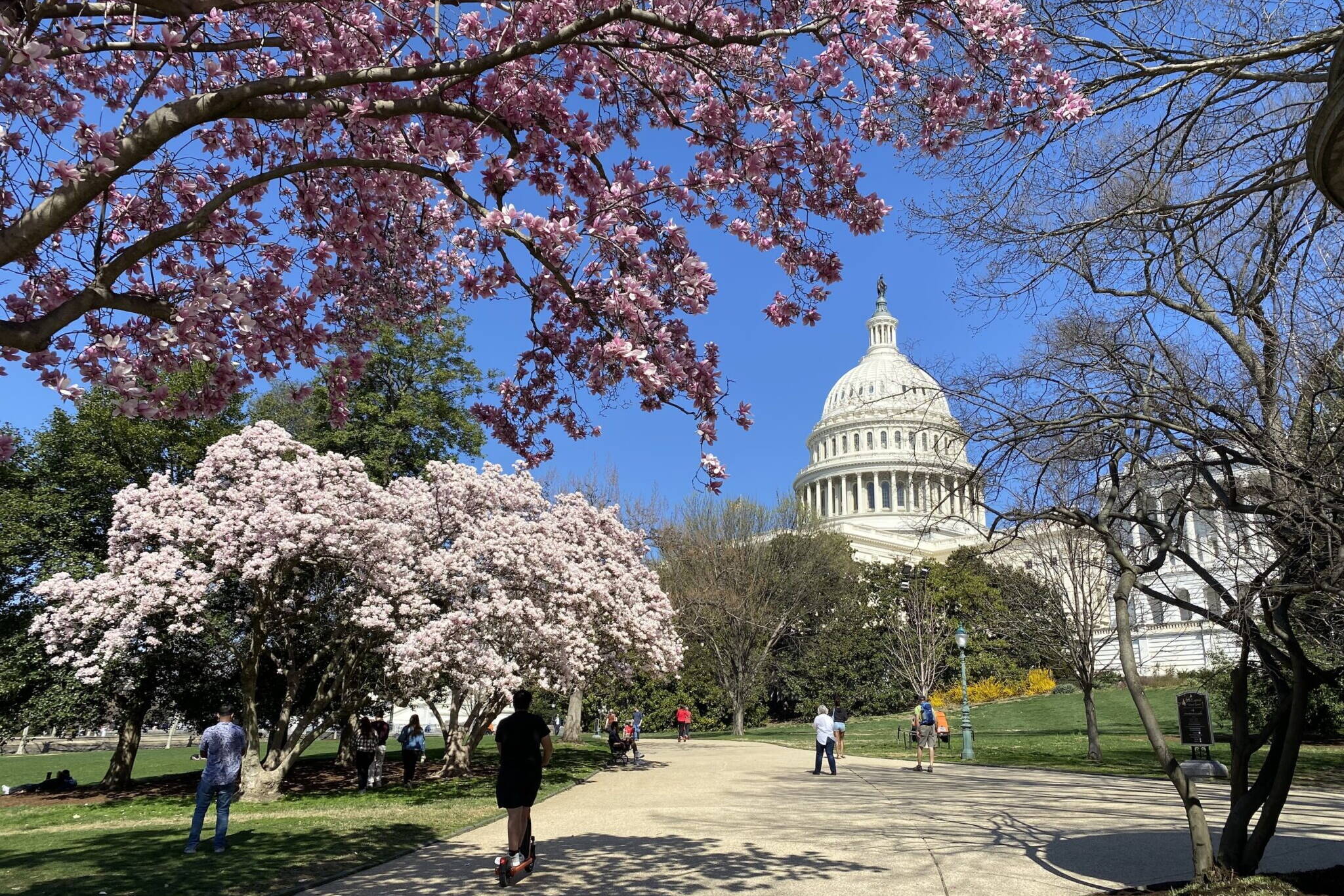WASHINGTON — The nonpartisan Committee for a Responsible Federal Budget released an analysis Friday showing the budget resolution Republicans plan to adopt later this month would allow Congress to add up to $5.8 trillion to the deficit during the next decade.
The organization wrote the reconciliation instructions included in the budget would allow GOP lawmakers to draft a bill later this year that could outpace the deficit impact of many big-name laws enacted during the last two administrations.
“A $5.8 trillion deficit-increasing bill would be unprecedented,” the analysis states. “It would add 14 times as much to the deficit than the bipartisan infrastructure law ($400 billion), more than three times as much as American Rescue Plan ($1.8 trillion), three times the 2020 CARES Act ($1.7 trillion), and nearly four times the original score of the 2017 Tax Cuts and Jobs Act ($1.5 trillion). In fact, it would add more to the deficit than all four of these major laws combined.”
That deficit impact, CRFB wrote, “would be the equivalent of adding a large new welfare program to the federal deficit.”
No Democratic votes needed
Republicans in Congress must adopt a budget resolution in order to use the complex reconciliation process to pass many of their core campaign promises.
The special legislative pathway will let the GOP enact changes without needing the support of Democrats to get past the Senate’s 60-vote legislative filibuster.
The largest deficit increase within the package would come from extending the 2017 GOP tax law, about $4.5 trillion in deficits, and likely making other changes to the U.S. tax code, about $1.5 trillion.
House Republicans want to try to offset some of that $6 trillion total in new deficits by cutting about $1.5 trillion in federal spending, though exactly how they’d do that remains under discussion.
Centrist Republicans in Congress have raised concerns about the House’s instructions calling on the Energy and Commerce Committee to find at least $880 billion in spending cuts.
That panel oversees Medicare and Medicaid and couldn’t reach that level of spending cuts without making some substantial changes to one or both of the programs.
GOP leaders and President Donald Trump have repeatedly said they won’t touch Medicare, leaving Medicaid, the state-federal program for lower-income people, as the likely source of the funding cuts.
Senate GOP approach
Senate Republicans wrote themselves a much lower threshold for cutting government spending in the budget resolution — a $4 billion minimum from four different committees across the 10-year budget window.
The Senate instructions, CRFB wrote in its analysis, “would allow a reconciliation bill that is nearly as large as the largest federal spending programs.
“A bill adding $5.8 trillion to deficits would be more than three-quarters (77 percent) as large as all projected Medicaid spending. It would equal 69 percent of base defense spending over the same time period, including being three times as large as projected spending dedicated to the Army. It would even equal half of all net spending on Medicare and a third of all spending on Social Security.”
CRFB wrote that Congress should change its course now.
“Instead of passing a bill with an historically large deficit impact, lawmakers should use this opportunity to rein in borrowing with a fiscally responsible package that can set the stage for a permanent package of thoughtful tax extensions and budget savings that grows the economy and improves our debt outlook.”
The Senate is expected to vote sometime this weekend to approve the compromise budget resolution and send it back to the House for final approval.
Once both chambers vote to adopt it, they can formally begin writing, debating, amending and voting to approve the reconciliation package.
• Jennifer covers the nation’s capital as a senior reporter for States Newsroom, the nation’s largest state-focused nonprofit news organization. Her coverage areas include congressional policy, politics and legal challenges with a focus on health care, unemployment, housing and aid to families. Alaska Beacon is part of States Newsroom, the nation’s largest state-focused nonprofit news organization.

